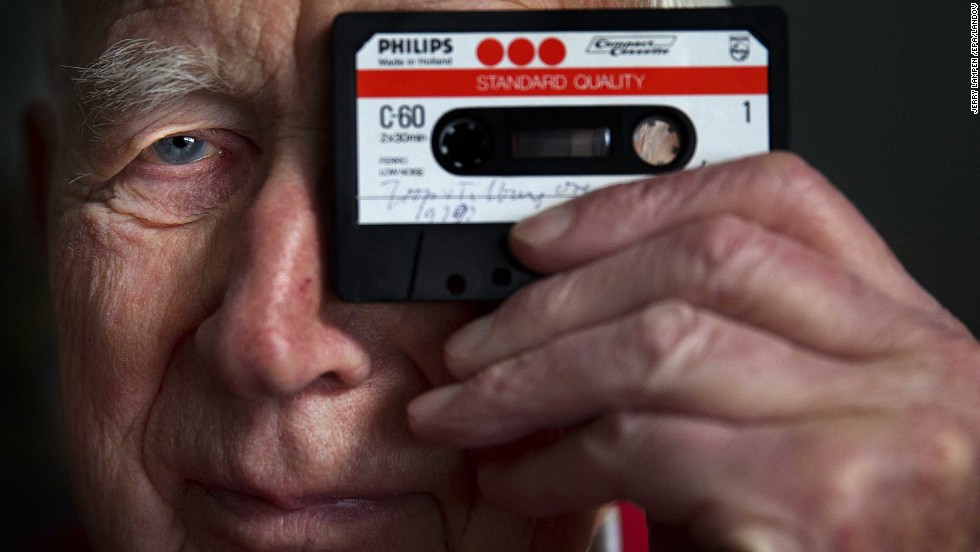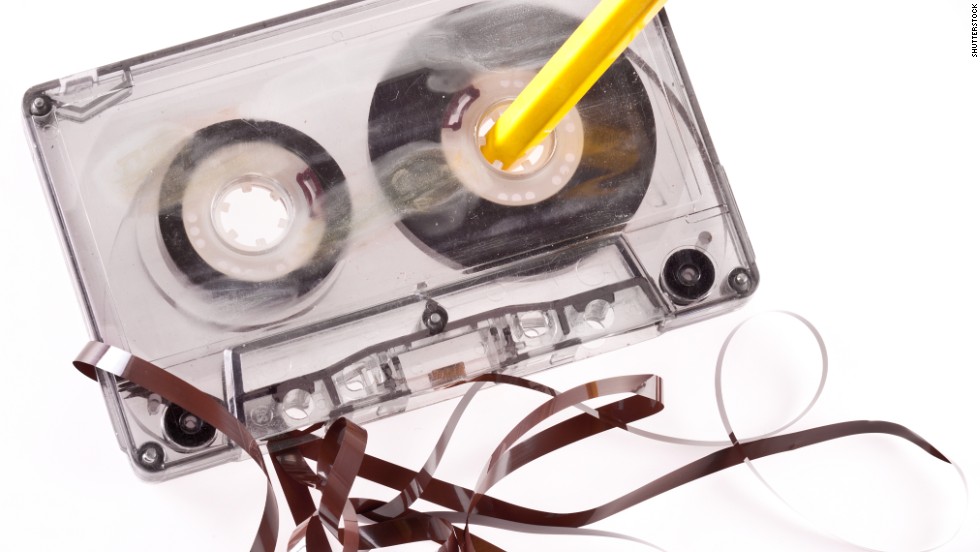Story highlights
- The cassette tape and player celebrate 50th birthday on Friday
- Versatile medium was originally for dictation, later included music
- Though overtaken by digital media, it's still popular around the world
- Recent events, releases have celebrated the cassette
The cassette should have died. Instead, it's turning 50 in an atmosphere of celebration.
Whether it's Cassette Store Day, new releases or simply nostalgia, the old tape cartridge isn't going gently into a good night that's already swallowed Edison cylinders, 78 rpm discs, Betamaxes and DATs.
That doesn't surprise Dale Wiggins, U.S. head of research for Philips, the electronics and technology company that invented the cassette back in 1963. He reminds people that the cassette was created on the heels of reel-to-reel taping, a bulky technology that required a lot of manual effort.
"All of a sudden you get this small form that you just plug into a player and it automatically achieves everything that used to be so hard and so cumbersome," he says. "It really was a precursor to a lot of the innovations that we have today."
The cassette actually made its debut a little more than 50 years ago, when the "compact cassette" tape and its player were introduced at a Berlin fair on August 30, 1963. But Philips dates the introduction to two weeks later -- September 13 -- when the format was launched in Amsterdam, the company's headquarters.
In the years since, the player and tape have seen highs and lows, from the 1980s ubiquity of personal players, boomboxes and mix tapes to its decline in the era of digital music and streaming radio. It's only in the past few years, with cassettes being seized upon by hipsters and metal bands, that it's entered a mild revival.
Mind you, not everybody is happy about this.
"Dear God, no," said commenter Patrick Butler on a Stereophile magazine article about Cassette Store Day. "I lived through cassettes once, and they sucked. But that's all we had. It was high school. Now it's just a bad joke."
Butler has a point.
Cassettes were originally invented for dictation, not high-fidelity music. And even with improvements over the years -- better magnetic oxides, Dolby noise reduction, high-quality tape players -- the medium was plagued by audio inconsistences, drop-outs and, for careless users, the dreaded tape snarl. (Get out your pencil and start spinning the spool -- it's going to be a long afternoon.)
Even Wiggins, who's 50 himself this year, admits that the cassette has its faults.
"My memory says it wasn't all that great," he chuckles.
But cassettes have also proved to be remarkably versatile, he says. You could record off the radio. You could share music with friends. You could make lovingly crafted mix tapes -- aural valentines -- for potential romantic partners.
Because Philips licensed the technology widely, it spread worldwide.
Today, the medium is prized for its low-fi capabilities and its ease of reproduction.
"It's still a common format for a lot of Middle Eastern, Indian and Asian street or folk music, too, because cassettes are so cheap to reproduce," record store owner Scott Seward told CNN.
Cassettes are even a fashion accessory. There are iPhone cases that look like cassettes, and one enterprising designer has woven ties out of old tape.
Philips' Wiggins adds that the ideas that company invested in cassette technology continue to be useful today. It's not just audio, either: One Philips technology, Magnotech, involves a medical diagnostic device that takes a small blood sample and, through magnetic nanoparticles, can determine markers.
"That's all based on the same magnetic principles that were used in that original cassette tape," he says.
Is the cassette boomlet peaking? That's anyone's guess. But, next year, there's another technology that's due to celebrate its golden anniversary. Maybe it's time to get ready.
Will anyone speak for the 8-track tape?






































